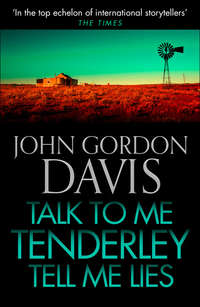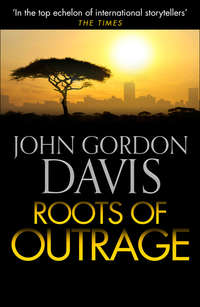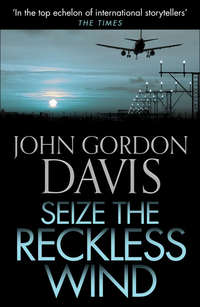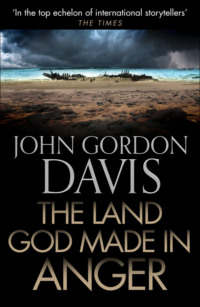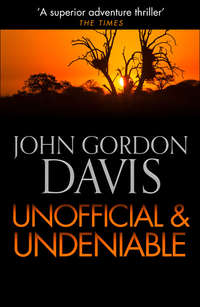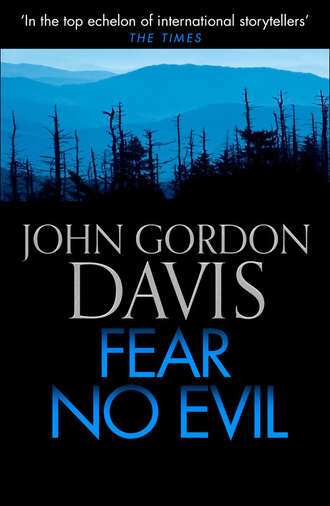
Полная версия
Fear No Evil
‘All right, Sally … we’ll do the best we can …’
four
Every time he saw headlights in the wing mirrors his heart thumped; he would give Big Charlie a warning flash of his taillights, and they would slow down to the speed limit, waiting for the police siren.
The two trucks drove on through the night. They were in Pennsylvania now, on Highway 81 south, two hundred miles from New York. The road signs flashed by, towns, gas stations, connecting routes. Homesteads, barns, silos, belts of trees, the distant glow of town lights. Five miles away, on their left, was the dark silhouette of the Appalachian Mountains, undulating almost the whole length of the United States, from Maine in the north down to the Great Smoky Mountains in the south, and beyond into Georgia.
He looked at his watch. Three A.M. Another four hours at the most before the zoo would discover the animals were missing and the alarm would sound.
He glanced at his fuel gauge. It was half full. Above the music he feverishly calculated they would have to refuel about sunrise—near Roanoke, Virginia. He wanted to stop only once to refuel, so he had to wait as long as possible.
The two great trucks of The World’s Greatest Show roared along, head lights beaming up the wide swath of highway, radios playing; and in the backs the animals were wide-eyed in the vibrating darkness, grunting, huffing, snorting.
Big Charlie Buffalohorn’s broad brow furrowed, and he muttered aloud: ‘Usin’ an awful lot of gas …’
Huge signboards flashed past, advertising motels, garages, tires, skating rinks, batteries, Exxon, Texaco, Shell, banks, Southern Fried Chicken, hamburgers with a college education. The Shenandoah Valley stretched ahead into the night, and just a few miles to the east was the black silhouette of the Shenandoah National Park.
David Jordan knew the number of year-rings on the giant stumps of ancient trees up there that had taken hundreds of years to grow and a few hours to hack down; he knew what the rocks were made of and that they had been there since the oceans covered the land. Through this wilderness swept the Skyline Drive, with its overlooks and picnic sites and campgrounds and comfort stations and grocery stores and gift shops and laundries and camping stores and ice sales and firewood sales and stables and gas stations, and signboards everywhere telling you to stay on the trails and make sure you have proper footwear and how dangerous the wilderness is. And down here the eight-laned Highway 81 swept through the Shenandoah Valley, and all the way the signboards signboards signboards for the people people people. And across the mighty land, the pollution hanging in the air in a haze, factory smoke and the exhaust fumes of automobiles and airplanes.
But roaring through the night in the stolen truck, his face tense, his heart jumping every time he saw headlights, his mind darting over and over the same things, he was feverishly grateful for all the roads turning off up to that long black ridge of mountains. Those mountains were what he had to get into if the police cars tried to force him off the road: he’d just keep going flat out to the next turnoff, with the police car bouncing off his side.
At four-thirty he saw Big Charlie’s headlights flashing him, and his heart tripped.
He slammed his foot on the power brakes and swung off onto the emergency lane. The other truck pulled in behind and Charlie jumped out of the high cab and worked himself under the engine. He reached up into the machinery. He brought down his hand, then showed it to Davey. It shone with diesel fuel.
‘How much you got left?’
‘Nearly empty.’
He ran back to his truck and leaped up into the cab. He revved the big engine and slammed off the brake. His heart was pounding and he felt sick.
He drove hard, willing the truck to go faster, racing the moment Charlie’s lights would flash at him again. That meant disaster: trying to fix it themselves, patching up the leak, and siphoning fuel from his truck to Charlie’s, parked wide out in the open highway.
At twenty minutes to five Big Charlie’s fuel gauge registered empty.
At quarter to five he saw a sign, GAS FOOD LODGING IO MILES, and he felt a surge of relief.
There was a long hill ahead, stretching away in his headlights. The accelerator was pressed to the floor, he was praying feverishly, Please God not this hill … Black yellow tarmac swept up and up endlessly, and all the time the diesel was squirting out of Big Charlie’s fuel pump. Then at last the headlights picked up the hilltop, and far away on the horizon he saw the signs, a hundred feet high: Shell, Texaco and, higher than them all, Exxon. Then his teeth clenched: there was another hill to climb.
His eyes darted to the mirror, willing Big Charlie to make it. He was halfway down the first hill now, and he still could not see the lights of Big Charlie’s truck. He wanted to bellow out, God, help us now!—and Big Charlie’s headlights came over the crest. He sighed and trod on the accelerator.
Davey roared up the new hill, his headlights searching for the top. Then, five miles ahead, he saw the signs gleaming like lighthouses, and he had never been so grateful to see American commercialism blighting the landscape. Then he gritted a curse as he saw one more long hill before those truckstop lights. Big Charlie’s headlights came into his wing mirror. Davey started up the last long hill, and the crest came into view. He roared to the top, and Big Charlie’s headlights were in his wing mirror all the way. Just three miles to go: he started downhill towards the lights, thanking God, and Big Charlie was still hammering up the other side of the hill, and his truck gave out.
Suddenly the engine coughed, and Big Charlie trod on the accelerator. The truck jerked, the animals lurched, and the huge machine started to shudder. It came to a grinding standstill in the emergency lane of Highway 81. David was pounding down on the other side of the hill, watching desperately for Big Charlie’s head-lights. He came to the bottom, with the hillcrest half a mile behind him; then he swung the truck into the emergency lane and slammed on his brakes.
He stared into the mirror for half a minute, praying, Please God … The eight-lane highway was divided by a wide ditch of no-man’s-land—it. was impossible to drive across. Then he clenched his teeth and rammed his truck into low gear. He roared the engine and heaved the wheel into a U-turn. He swung his huge truck right across the highway, then jammed his foot flat. He pulled back into the emergency lane, then roared the massive truck northward up the southbound lanes, his eyes bright with fury, praying Please God no traffic for just two minutes!
He drove flat out, hunched over the wheel, heart drumming. The long black hill stretched up ahead of him, on and on. He was almost crying. At last his headlights showed the top. He leaned on the horn, and came over the top of the hill.
There, halfway down, was Charlie’s truck. Davey tore down the hill, praying to God to keep the traffic away, then he drove out across the highway into another U-turn.
He swung his huge truck right across the four lanes, desperately checking the long hill for headlights. His wheel was hard over, the great truck was coming around, and he thought he was going to make it in one swing. His right fender was coming around, around, around—and then it was not going to make it. He slammed on his brakes and jerked his engine into reverse. Teeth clenched, he twisted the wheel and let out the clutch.
Big Charlie bellowed, ‘There’s a truck coming!’
Suddenly a big beam lit up the sky beyond the crest of the hill. The truck full of elephants was stretched across all four lanes. David kicked the accelerator flat and his truck screamed backward as the terrible headlights burst over the crest, blinding bright. Then Big Charlie was running at them, shouting and waving his arms. David rammed his gears, roared the engine, and let out the clutch; the truck leaped—and it stalled.
It jolted to a stop across all four lanes. The other truck was three hundred yards off, hurtling down on them at sixty miles an hour. David bellowed, wrenched out the decompressor and slammed his foot on the starter. The truck was two hundred and fifty yards away now, and the driver still had not seen him. David shoved back the decompressor, and the engine roared to life. He revved it for all its might, took his foot off the clutch, and the massive vehicle surged forward.
The truck was a hundred and fifty yards off when the driver saw the long side. At sixty miles an hour a vehicle travels a hundred and fifty yards in five seconds. The driver leaned on his horn and jammed his foot on the brakes. There was a screaming blast and a shattering hiss of brakes, the roaring of engines and the screaming of tires. The other truck came tearing down the highway toward his side, twenty yards, fifteen, ten, five—blasting and screeching—and the driver swung wildly to the left; David roared his truck full of animals across the road, and the truck hurtled past, missing Davey’s by a yard, blasting a wall of wind in front of it, the driver bellowing obscenities. Davey brought his vehicle to a stop in front of Big Charlie’s and slumped over his wheel, ashen-faced, eyes closed.
Fifteen minutes later the two trucks of The World’s Greatest Show crawled into the all-night truck stop, one towing the other.
It was a big complex, scores of massive vehicles parked shoulder to shoulder. Some of the trucks still had their engines running, exhausts spewing, while their drivers were in the cafeteria, and the cold night air was dense with diesel fumes. David towed Big Charlie’s truck into the farthest corner of the big parking lot. Then they set feverishly to work. Davey wriggled under the engine with the wrench while Big Charlie held the flashlight. He began to unbolt the fuel pump.
‘Where’s another Fargo?’
They found one, and Davey scrambled under the hood and stole its fuel pump.
five
The two trucks of The World’s Greatest Show hurtled down the eight-lane highway.
The first gray was slowly turning pink above the Appalachians; then came the golden red spreading across the starry sky; and now the trees on the Appalachian ridge were flaming silhouettes. Then the tip of the sun came up, setting the east on fire, beaming down into the Shenandoah Valley, casting long shadows through the trees and the farmlands and across the highway, shining golden into the cabs of the two trucks and into the tired faces of David Jordan and Big Charlie Buffalohorn as they hammered down Highway 81. And for those moments the world beyond this ugly highway was young and beautiful; those purple and gold early morning mountains stretched southward in the sunrise, and Davey knew every river, stream, glade and gulley, and he was glad with all his heart for what he was doing.
For once upon a time, and not so long ago, the great mauve forests stretched right across the mighty land, trees with trunks wider than a coach and four, and firs and spruce, elm and pine and chestnut, towering forest peaks and valleys and great plains rich in waving grass, like an ocean, as far as the eye could see. There were herds of bison, and deer and bears and game; and rushing rivers and tumbling brooks and waterfalls and rapids and canyons, all of the purest water. The air was clean: from the vast blue lakes of Canada in the north, to the Gulf of Mexico in the south, from the mighty Rocky Mountains in the west to the Appalachians here in the east. That was how God made it, and it had taken millions of years to do it; it was beautiful, and it would have gone on forever, for He made it to stand all the ravages of time; but He did not make it to withstand the gluttony of Man.
Davey Jordan drove the truck of animals down the highway in the sunrise, the towns and cloverleafs and signboards flashing by, and those mountains up there were all that was left of the wilderness. The only pioneering that was left for a man was to get to the next gas station, his only survival problem the price of a hamburger.
At seven o’clock they heard it on the radio. Suddenly the jolly wakee-wakee music was cut off. His heart crunched and the disc jockey said excitedly:
We interrupt your favorite program to bring you this amazing newsflash. Now you’ve heard it all, folks. You’ve heard of huge bank robberies, all kinds of hijacks and sky-jacks and kidnaps and stick-em-ups, but this has got to be the zaniest of them all! Now get this: the Bronx Zoo has been robbed!
Yes, you heard me right! The Bronx Zoo has been robbed, but not of its cash box!
Yes, sir, the elephants, lions, gorillas and that bi-i-i-g tiger have been stolen in the night, and right this red-hot moment all those dangerous animals are at large somewhere in the U-nited States! The mind-boggling theft was discovered at six-thirty this morning. Police all over the eastern part of the United States have been alerted—
It was a quarter to eight, and a beautiful Sunday morning.
Every fifteen minutes they heard the excited newsflash again, but there were no new details on any station.
Twenty miles ahead, at Troutville, the Appalachian Mountains curved to the west, and Highway 81 continued south through a wide treeless plain: if a police car chased them in that plain, there was nothing he could do. But a hundred miles farther the mountains curved back again, at Wytheville, and that was where he was going to swing onto Route 21, heading for the Iron Mountains, then drive like mad down toward the Smokies on the backcountry roads. Once they were oil those roads they would be only about a hundred miles from the Smokies; and right now they were only one hundred miles from Wytheville. In one and a half hours they would be off this highway and into the back country—please God just another hour and a half …
Then at eight o’clock came a different newsflash:
It has now been confirmed that two trucks belonging to The World’s Greatest Show, which left New York last night, have failed to arrive in Boston, and that circus equipment which came from these vehicles has been found abandoned in the Bronx Zoo! Police believe that the drivers of these two trucks will be able to assist them in their inquiries and have called for the public’s help in finding them. Here is a description of these two men. …
Davey’s heart was pounding; his foot was flat on the accelerator, and he tried to jam it flatter.
six
The zoo was in an uproar, policemen everywhere. Outside the locked gates were reporters and television crews. The professional staff had gathered in the conference room adjoining the director’s office.
‘I’ve met him once,’ Dr. Elizabeth Johnson muttered, massaging her brow. Just to sit still, while the director kept interrupting the meeting to accept telephone calls, took a supreme effort. She had not even combed her hair, and her damn panties were on back to front—she had slammed down the telephone, scrambled into the nearest clothes, flung herself into her car and driven furiously down to the zoo. ‘And I found nothing remarkable in him,’ she added. Which wasn’t true—but she was not about to admit anything in the bastard’s favor. A raving lunatic.
‘Remarkable, I assure you,’ the curator of mammals muttered distractedly while the director barked into the telephone next door. ‘Quite fearless. Used to get into the big cats’ cages with them.’
That wasn’t news; it was one of the first things she’d heard when she came to work here. ‘That shows he is crazy.’
‘But, he didn’t seem crazy. Just … I don’t know, I liked him—everybody did. And obviously very intelligent.’
‘And rude.’ Her accent was English.
‘Was he? I’m surprised. Very gentle man, I always thought. No-nonsense and quick, but … never rude. Gentle. And, somehow, absolutely trustworthy. Now? … look what he’s done
The director waved at them to shut up. He was a tall, horsey man of about fifty, eyes large behind his glasses. He was saying, ‘Really, Mr. Worthy … Please, Worthy, it is highly likely that your stolen trucks will be stopped on some highway with the animals safely inside them—but if this man Jordan manages to release them somewhere, I assure you that the recapture operation will be methodically mounted under my personal supervision, with the assistance of the US Wildlife Department and other experts. All other civilians will be excluded … Mr. Worthy, there are numerous tried and proven methods of capturing wild specimens, and as a zoologist I assure you I am familiar …’ He took an impatient breath and shoved his glasses onto the bridge of his nose. ‘Mr. Worthy—you will be consulted when necessary, but I am unaware that circus personnel are experts in the capture of wild animals—now … yes, I will keep you informed, now good day, my other phone is ringing!’
He banged down the telephone and snatched at the next. ‘Professor Ford,’ he snapped.
Dr. Elizabeth Johnson could sit still no longer. She muttered impulsively to the curator: ‘Buzz me at the surgery when this meeting gets going.’ She got up and Walked out of the room, heading grimly for the Animal Hospital.
Professor Jonas Ford had banned the press, but outside the gates a group of reporters was speaking to one of the keepers.
‘Of course we all love the animals, but Davey was somethin’ else again. Man, he could almos’ talk to animals.’
‘What do you mean, “talk”?’
‘I mean talk, sir,’ Ambrose Jones said earnestly. ‘I don’t mean just makin’ their kinds of noises, though Davey could make any kind of animal noise you name—canary, hippopotamus, monkey, elephant, you name it.’ He shook his old head. ‘But what I mean is, Davey knew what was goin’ on in an animal’s head. … He knew, an’ he could go up to that animal an’ if you was listenin’ real close all you could hear was a kind o’ mixture of noises, know what I mean, like breathin’ through his nose, snortin’ soft, and whistlin’ and some of the noises the animal makes, like purrin’ if it was a cat or squeakin’ if it was the hippo, and then some English, real soft and friendly. And so confident, man … and I ask him once, Davey, I said, How you do it, ’cos I wanna be able to do it too; and he says, animals got more senses than we got, that’s obvious because they can do things we can’t, and one of those extra senses is feelin’, he says … feelin’. I mean telepathy, kind of.’
Ambrose shook his graying head. ‘I ask him to explain plenty of times, but he just came over all complicated. And then he used scientific words too, ’cos, man, that Davey reads books; he’s studied more books about animals than Professor Ford, even.’
‘But what unusual things have you seen him do with animals?’
Ambrose said: ‘I mean, he used to spend hours just sittin’ with his animals in their cages, playin’ with ’em and just watchin’ ’em and talkin’ to ’em and … just bein’ with ’em. That’s the only way to know an animal, he said, by studyin’ it, everythin’ it does. And be its friend. … He did that in the wilderness too, plenty of times.’
‘Did Jordan ever get into the big cats’ cages?’
‘Particularly the big cats,’ Ambrose said. ‘And the elephants and the apes and the rhinos—and those rhinos, sir, they don’t take to nobody, but they like lambs with Davey. But the big cats?—they went mad for him.’
‘And other keepers can’t do that?’
‘No, sir,’ Ambrose said. ‘Certainly not. When the keeper has to go into the cage to clean it, first he chases the cat into the other section and seals her up in there. He don’t go stickin’ his hands into her cage. One time’—old Ambrose said, warming to his theme—‘one time the big tiger’s got to go to the doctor, see, but in the surgery she escapes. And she’s runnin’ all over the compound, snarlin’ and roarin’ and we’re all runnin’ round hollerin’ and gettin’ the tranquilizer gun—an’ Davey comes in; and he jus’ walks up to that tiger and says one word and puts his arms around her and leads her back into the cage like a little lamb.’ He added: ‘He loved that tiger. Mama. And Professor Ford was always tearin’ a strip off him for gettin’ in the cages, sayin’ they were dangerous.’
‘But was he a troublemaker?’ the reporter asked.
‘No sir! No. Davey was a real quiet man, and he did his job better’n all of us.’
‘And the other man, Charles Buffalohorn, did you know him?’
‘Big Charlie?’ Ambrose said, ‘Sure. He and Davey been pardners a long time. But he didn’t work here. But he came to the zoo plenty, to see the animals.’
‘What’s he like?’
‘Nice guy,’ Ambrose said. ‘Real nice. And real gentle. And big. He makes Davey look so small. But Davey’s … smart,I guess. And he’s so … sweet. Maybe that’s the word … but tough too.’
‘You mean sweet-looking?’
‘No. Well, yes, that too, but I mean … sweet-natured ... sweet-thinking, like … he’s got beautiful thoughts …’
‘And Big Charlie?’
Old Ambrose smiled. ‘He don’t talk much. But he ain’t stupid. You know what those two do? Go up to trappers’ country, up to Canada and right here in the States. And,’ Ambrose said proudly, ‘they’d steal the traps! And throw them in the rivers.’
‘How do you know that?’
‘It’s no secret. Davey’s very hot against trappers, those animals takin’ days to die, and chewin’ their own legs off to get free, and the thirst and all that, it’s terrible, ain’ it? Why can’t an animal at least get a decent death in a civilized country?’ he says. And the whaling—and the seals, that’s another thing. Every year,’ Ambrose said, ‘Davey goes up to Canada, to the Saint Lawrence when they’re butcherin’ the seal pups, right? And he joins them Greenpeace guys and the Friends of the Earth on the ice. He been in plenty of fights up there with those Norwegian sealers—the Greenpeace guys don’t fight, you know, they just obstruct by standin’ in front of the little pup lyin’ there helpless, and Davey don’t like fightin’ either, but he says there’s a time when a man’s just got to stand up and fight when he sees somethin’ terrible happenin’—he’s got the duty, he says. Like when you see a mugger beatin’ up a little old lady. Well, it’s the same with the seals. And one time,’ Ambrose smiled, ‘he gets so mad he goes running out onto the ice with a big whip! And he cracks it over the heads of those butchers, like this, and he chases ’em back to their ship.’
‘Didn’t they retaliate?’ the reporter smiled.
‘Sure, and some come at him with their clubs, but Davey has ’em dancin’ all over the place with his whip, and he drives ’em off. Then,’ he said, ‘they reported him to the Mounties.’
‘What happened?’
‘It was in the papers,’ Ambrose said proudly. ‘The Mounties took him in front of the judge. And Davey says, “It’s amazin’ what a fuss big brave men make about a little bit of whip cracking when they busy butcherin’ defenseless little seals with clubs, an’ skinnin’ ’em alive …” It was all in the papers. And there’s such a fuss that the judge just warns Davey, and binds him over to keep the peace, ’cos he didn’t actually hit nobody with his whip, he just frightened ’em off. And you know what Davey says to the judge?’
‘What?’
‘“But I am keepin’ the peace, your Honor—God’s peace!”’
Suddenly, as he came over a long hilltop, there was the big flashing sign: POLICE CHECK—ALL TRUCKS PULL INTO EMERGENCY LANE.
Half a mile ahead of them was a wooden barrier across the highway, several police cars parked on the verges. A row of trucks was being inspected by policemen before being allowed to proceed under an elevating boom. Davey Jordan’s heart pounded, and he jerked his foot off the accelerator.
He looked desperately into his wing mirror for Big Charlie’s truck, and flashed his taillights in warning. His mind was racing. He was slowing to forty miles an hour, and the row of trucks was only five hundred yards away—now four hundred yards away, now three hundred … Now the last truck was only two hundred yards ahead, and the barrier one hundred yards ahead of that. And Davey trod on the accelerator and slammed his hand on the horn.





